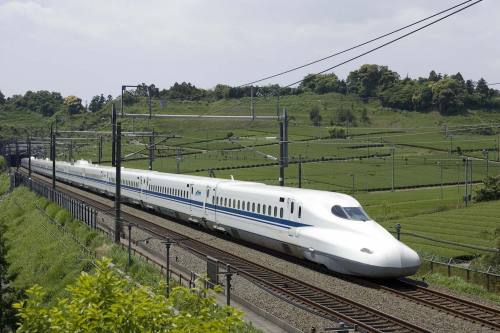Proponents and opponents of high-speed rail projects like
the one Texas Central is proposing clashed at a Senate Transportation meeting Wednesday. The two groups testified over a series of bills that would delay progress on the project to connect Houston and Dallas in a brief train ride.
Here are the bills the hearing focused on:
- Senate Bill 975 by Sen. Brian Birdwell, R-Granbury: This bill provides a framework of security requirements to be followed during the construction period of a high-speed rail line. It specifically deals with requirements for passengers entering, exiting and passing through on the train during the operation of the rail system.
- Senate Bill 977 by Sen. Charles Schwertner, R-Georgetown: This bill prohibits the legislature from appropriating new funds or allowing state agencies to use existing funds to pay for private high-speed rail in Texas. It also prohibits state agencies from accepting or using state funding for related costs. The only exceptions included in the bill are made for federally required environmental duties.
- Senate Bill 979 by Sen. Schwertner: This bill specifies that private entities do not have the power of eminent domain for the purpose of developing a high-speed rail project. The bill also prohibits entities acquiring private property under the threat of eminent domain from later using that property for high-speed rail projects.
- Senate Bill 980 by Sen. Schwertner: This bill prohibits state funds, credits or guarantees from being used for any purpose related to a privately owned high-speed rail unless the state first obtains and maintains a security instrument to secure the repayment of those state funds.
- Senate Bill 981 by Sen. Lois Kolkhorst, R-Brenham: This bill allows a modern passenger rail network to offer single-seat service between Texas city-centers only if components of the network are compatible so more than one high-speed source can use the infrastructure.
These five bills are
just a selection of the many that have been filed to impose regulations on high-speed rail projects. Many of those bills were filed by rural lawmakers.
Ultimately, all of the bills heard by the Senate Transportation Committee Thursday were voted out of the committee, by a strong majority. Only Sen. Sylvia Garcia, D-Houston, casted votes against some of the bills, including, SB 977, SB 980 and SB 981.
Kyle Workman, the president of Texans Against High Speed Rail, testified in favor of all five bills saying the proposed usage of the corridor between Dallas and Houston would be limited.
"Essentially, Texas Central’s argument is that they want to build a road, [albeit] a skinny road that only one kind of car can drive on," Workman said. "It does not make sense for anybody in my world to think that we should develop a road that only one kind of car can go on."
Chris Lippincott, the executive director of Texas Rail Advocates, said the bills presented could easily be expanded to discourage further investment or growth in Texas.
"Why wouldn't they think that the proposals before you today could be expanded eventually to include right of way for highway projects that serve factories, freight rail lines that move agricultural goods or commuter projects that serve suburbs of Houston, Austin or other Texas cities?" Lippincott said.
Texas Central articulated a similar sentiment in a written statement they released following the hearing.
“We are asking to be treated like any other company investing in Texas, creating thousands of jobs and building a major infrastructure project—all without taking government grants," the statement said. "We need to keep Texas open for business and attractive to entrepreneurs willing to invest in the state’s future."
Tim Keith, the president of Texas Central Partners, addressed each bill individually. He asked for the opportunity to work with the authors of SB 975, which addresses security, to adjust language while recognizing the importance of the bill overall. Keith said SB 977 would not, on its face, impact Texas Central, as they entity does not plan on taking any state funding, but could impact the Texas Department of Transportation from performing its duties.
When addressing SB 979, Keith said Texas Central has no desire to use eminent domain, but would use it only in a last ditch effort to secure rights to land. Regarding SB 980, Keith said the bill would not impact Texas Central directly. Finally, Keith addressed SB 981. He said if the state required multiple use for train lines, more risk would be introduced into Texas Central's proposed project.




